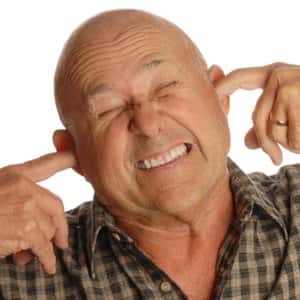
Tinnitus can be a terrible trial. Although the condition is not considered serious by most health care professionals, patients often report that the ringing, buzzing, chirping or whining noises that no one else can hear is ruining their quality of life and driving them to distraction. Severe tinnitus often interferes with sleep-and there may be a vicious cycle that leads tinnitus to be more troublesome when people become sleep deprived. In really severe cases, sufferers have contemplated suicide.
There are few effective treatments for tinnitus. The best appear to retrain the brain so that it doesn’t notice the tinnitus as much any longer, but these approaches can be time-consuming and expensive.
We were surprised to get a report recently from an individual who discovered by serendipity that taking biotin helped reduce how much his tinnitus troubled him. This reader followed up on that story and got surprising results:
Q. A few weeks ago you published a letter from a man who tried biotin to stimulate hair growth. He did not get hair growth but noticed his tinnitus noise was reduced.
I have tinnitus, so I tried biotin gel caps. I punctured the gel caps and applied biotin all over my head. I shave my head so this method was easy to do. It takes three gel caps to cover my entire scalp and I do it twice a day.
Tinnitus Better with Biotin:
My tinnitus noise is much softer and not nearly as intrusive. Thanks for publishing his letter.
A. You astonished us with your approach. We assumed that our previous reader was taking the capsules orally. Applying biotin to the scalp is a completely new idea for us. We are glad it works for you.
As we told the previous reader, we have been unable to find research showing that biotin can alleviate tinnitus, but it is a low-risk approach. We are interested in hearing from others who decide to try this approach. Please post your comments below.

